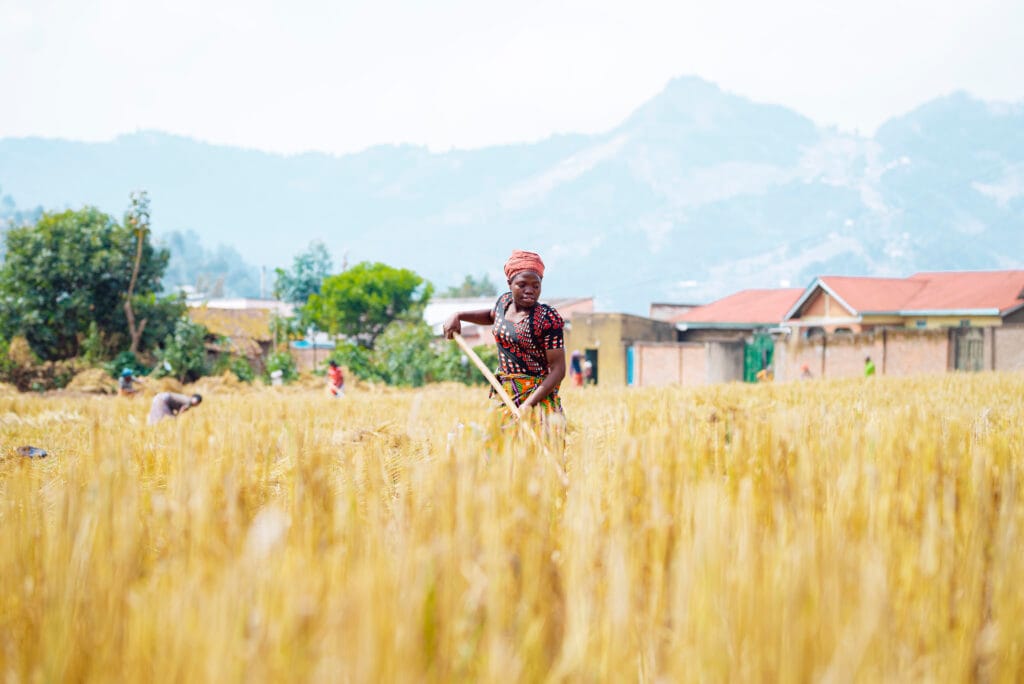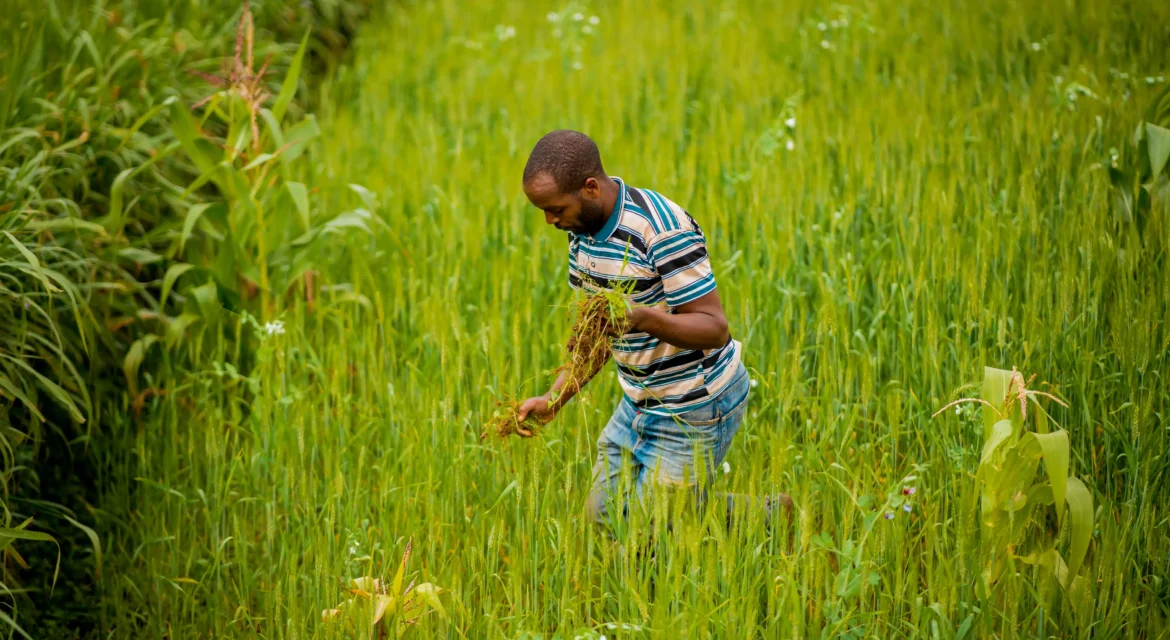The Rise of Climate-Resilient Farming in Rwanda
In the dry, sun-bleached plains of Nyagatare, where the wind once whispered through parched fields and the soil cracked beneath one’s feet, something remarkable is happening. For years, this eastern corner of Rwanda has battled the harsh effects of climate change. The dry season was unforgiving; fields lay empty, harvests were delayed, and families braced for lean months. Farming in Nyagatare had become a struggle, season after season, vulnerable to every shift in the weather.

But now, for the first time in years, farmers are planting and harvesting in the same breath; rain or shine. Karani Jean Damascene calls it nothing short of a miracle. The quiet-spoken farm estate owner, Karani, had become used to watching his land yield modest results, dictated not by effort but by the elements. Then came a simple yet radical shift caused by the introduction of basic irrigation to the land.
With exposure to such a climate-smart practice like low-cost irrigation as well as timely planting, and better soil use, which all help farmers grow more with less rainfall, Karani’s farms produced a harvest nearly four times greater than in previous years. “That kind of improvement is something I had never seen before,” Karani reflects. “It shows me that this approach really works.”
This kind of transformation reflects a growing continental shift, where smallholder resilience is now central to the African Union’s climate adaptation agenda, recognizing that food security begins with empowering those closest to the land.
But climate resilience isn’t just about installing systems. It’s about rethinking farming for a new era where erratic rainfall, heatwaves, and shifting growing seasons are the new normal. It’s about equipping farmers with the skills, tools, and strategies to plan, adapt, and flourish in unpredictable conditions.
And that’s exactly what Walisha Foundation is doing on the ground.
By introducing accessible irrigation technologies, hands-on agronomic training, and practical knowledge transfer, Walisha is helping farmers like Karani turn climate pressure into opportunity. These aren’t temporary fixes; they’re long-term strategies for food security, designed with farmers, for farmers.
In Nyagatare, that looks like dry-season planting; farmers are no longer waiting for the skies, but are working with confidence. And communities are finally building more secure, self-reliant futures, rooted in food, income, and dignity.
Resilience doesn’t begin on paper; it begins in fields like Karani’s, where innovation meets necessity, and the result is more than wheat; it’s income that stays local. It’s fewer hungry days. It’s pride returned to rural livelihoods.
As Karani now advocates for his farm manager to receive training in smart agriculture, his story becomes part of something much bigger: a growing movement across Rwanda and East Africa to make farming not only climate-proof but future-ready. This is what resilience looks like. And with the right partnerships, it’s only just beginning.
As more farmers see the results Karani has seen, the opportunity to scale this model becomes clearer and you can be part of this developing story. In 2024, it was reported that every farmer trained by Walisha shared their knowledge with at least four others in their community, multiplying the impact of every donation.
Whether as an individual or organization, your support helps Walisha train more farmers, scale sustainable solutions, and grow food security where it’s needed most. Other provinces are relying on your help to see a bumper harvest too. Will you show up for them?
Learn more and get involved at www.walisha.org


